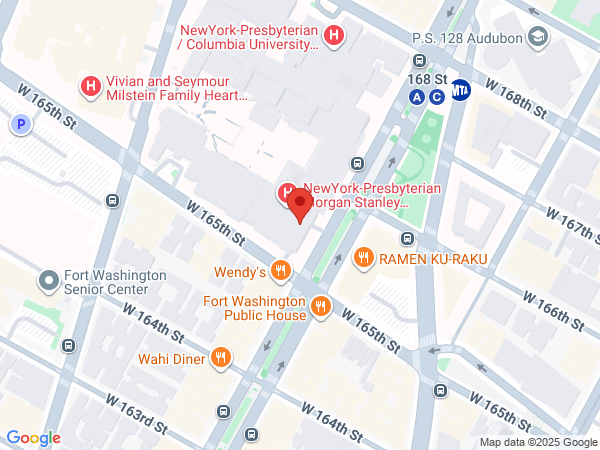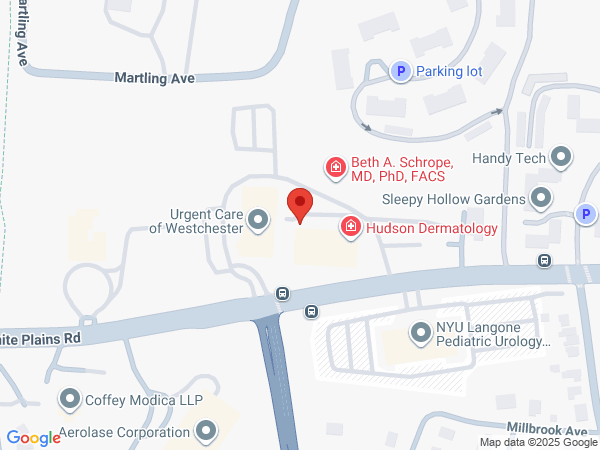Mitral Valve Care Service
If you or a loved one have been diagnosed with mitral valve disease, Columbia can help. Our Mitral Valve Care team offers comprehensive, personalized care designed to improve your quality of life. We offer access to the latest, most advanced treatments, including minimally invasive mitral valve replacement and repair.
- Mitral valve disease is one of the most common forms of heart valve disease, but until recently, disease management has been limited to medications to manage symptoms or invasive surgical procedures.
- Recent advances for valve repair now include minimally invasive options like transcatheter edge-to-edge repair (TEER).
- Columbia is leading research for transcatheter mitral valve replacement, offering life-saving, minimally invasive alternatives for patients who are not candidates for traditional surgery.
To make an appointment with our Mitral Valve Care team, please call (212) 342-0444 or complete our online appointment request form.
What is Mitral Valve Disease?
The mitral valve controls blood flow from your left atrium to your left ventricle. It has two leaflets (flaps), while your other heart valves typically have three. Mitral valve disease keeps the valve from properly managing blood flow.
- Mitral regurgitation (MR): The mitral valve cannot fully close, causing blood to flow backward into the right atrium. This reversed flow creates pressure that can cause structural damage to the heart.
- Mitral stenosis (MS): The mitral valve stiffens, making it difficult for blood to flow out. The heart is forced to work harder, which can lead to long-term damage (heart failure).
- Mitral annulus calcification (MAC): When calcium builds up on the fibrous ring (annulus) at the base of the mitral valve, it can lead to mitral valve dysfunction including MR and MS.
Mitral valve disease is the most common form of heart valve disease and is often accompanied by other health conditions (comorbidities). If left untreated, mitral valve disease can significantly impact quality of life and can lead to heart failure and death. Until recently, the only treatments for mitral valve disease were open surgery and medications like diuretics.
Learn More About Mitral Valve Disease
Our Services
Mitral valve disease can now be treated using a range of procedures, including minimally invasive techniques that reduce the risk of complications and shorten hospital stays and recovery times.
Transcatheter Repair/Replacement
A minimally invasive technique that uses a catheter inserted into a blood vessel in the neck or leg. Specialized tools and devices are guided through the catheter to the heart, allowing access to the diseased valve without surgery.
- Transcatheter edge-to-edge repair (TEER): A device with clasping arms is inserted via a catheter from the groin into the mitral valve, where the arms grab onto the leaflets of the valve and pull them together at the center. This creates two smaller openings that open and close more effectively, reducing or eliminating mitral regurgitation.
- Transcatheter Mitral Valve Replacement (TMVR): A replacement valve is guided through the catheter to the heart and implanted in the diseased valve or failed replacement mitral valve.
- Annuloplasty: A ring-like device is placed to reinforce the mitral annulus to reshape and stabilize the base and improve mitral valve function and address mitral regrugitation.
- Transcatheter Electrosurgery: This procedure uses an electrical current to cut and reshape valve leaflets and other cardiac tissue without the need for open surgery.
Surgical Mitral Valve Replacement
This surgery implants a mechanical or biological tissue valve to take over for the damaged mitral valve. Because traditional open surgery places significant strain on the body, many patients with severe mitral valve disease are not candidates for this approach.
Robotic Surgery
Columbia is a leading site for robotic heart surgery, a safe, accurate, and minimally invasive alternative to traditional open heart surgery. Robotic surgery pairs state-of-the-art technologies with the highest level of surgical expertise to perform complex operations with pinpoint accuracy.
Programs Highlights
A Leading Site for Mitral Valve Research
Our doctors are actively involved in new and exciting treatments for mitral valve disease. Columbia is an epicenter for clinical research and is a main site for major clinical trials. We are proud to have helped pioneer some of the most impactful advances and devices in the field, including TEER devices and transcatheter mitral valve replacement systems.
Robotic Surgery for Mitral Valve Repair
Our mitral valve surgery program offers cutting-edge robotic mitral valve repair and replacement using the da Vinci Xi robotic system, delivering unmatched precision and accuracy during surgery.
Outcomes You Can Trust
The Columbia Structural Heart and Valve Center has a proven track record of superior outcomes compared to other local hospitals, all while taking on the toughest cases. Our team of interventional cardiologists and cardiac surgeons work together to determine the best approach for treatment, including minimally invasive procedures and hybrid surgery.
World-Class Imaging
Thanks to our unparalleled excellence in cardiac imaging, we can tailor our procedures to your specific anatomy with confidence. We aim to deliver outstanding results, not just in the short term, but for years to come.
A Team to Partner With For Years to Come
Valve diseases are chronic, long term conditions that require lifelong support. Our comprehensive care team will partner with you for long-term followup and management.
Care at NewYork-Presbyterian Hospital
NewYork-Presbyterian Hospital is home to one of the most advanced Catheterization Laboratory in the nation. Our team provides the highest level of care using the latest technology, including on-site access to advanced diagnostic testing to ensure your treatment is fast, comfortable, and effective.
Columbia Virtual Visits
For some appointments, it may not be necessary to come into the office at all. We offer Virtual Visit Telehealth appointments so you can see your doctor from the comfort of your own home. When you contact us to make an appointment, our team will work with you to determine if a Virtual Visit is right for you.
What Specialist Will Be Part of My Care?
Interventional Cardiologist
An interventional cardiologist is trained to perform minimally invasive transcatheter procedures using a thin tube called a catheter inserted into an artery or vein to access and treat the heart and blood vessels. There are different subspecialties of interventional cardiologists, depending on what conditions they treat. Most transcatheter procedures are performed in a specialized facility called a catheterization laboratory, or cath lab for short.
- A structural heart and valve specialist is an interventional cardiologist who can diagnose and treat valvular heart disease. When the heart's valves don't open and close properly, it becomes harder for the heart to pump blood to the rest of the body. Thanks to recent advances, man-made valves can be inserted and implanted to take over the function of the diseased valves without open surgery. Because of their complexity, structural heart procedures like valve replacements are performed in a cath lab.
Cardiac Imaging Specialist
A cardiac imaging specialist provides essential information for diagnosing heart problems and guiding interventional procedures. They use advanced imaging technologies like computed tomography (CT), echocardiography, and X-rays to create accurate images of the heart and blood vessels. Imaging specialists and interventional cardiologists work together to map out procedures in real-time—without open surgery.
Cardiothoracic Surgeon
A cardiothoracic surgeon performs traditional heart surgery—the chest is opened, and the heart is accessed directly. For some complex procedures, cardiothoracic surgeons and structural heart and valve specialists work together to perform hybrid procedures, combining elements of interventional cardiology and traditional surgery.
General Cardiologist
A general cardiologist can diagnose and treat many forms of heart disease. These doctors are patients' first point of contact and play an important role in managing heart health. When patients with heart disease can no longer manage their symptoms with medication and lifestyle changes, general cardiologists may refer them to interventional cardiologists for treatment. General cardiologists also work with the interventional care team to manage a patient's recovery and long-term heart health.
Our Team
Interventional Cardiology
Susheel Kodali, MD
- Director, Columbia Structural Heart and Valve Center; Co-Director, Mitral and Tricuspid Center

Cardiovascular Imaging
Rebecca Hahn, MD
- Director, Interventional Echocardiography in the Columbia Structural Heart and Valve Center; Co-Director, Mitral and Tricuspid Center

Cardiac Surgery
Arnar Geirsson, MD
- Director, Cardiovascular Institute; Director, Surgical Heart Valve Program; Co-Director, Mitral and Tricuspid Center

Isaac George, MD
- Surgical Director, Columbia Structural Heart and Valve Center; Co-Director, Mitral and Tricuspid Center

Our Locations
Make an Appointment
To make an appointment with our Mitral Valve Care team, please call (212) 342-0444. You can also complete our online appointment request form, and our office will follow up with you soon.
We accept most major insurance plans and can verify your plan when you call to make your appointment.






